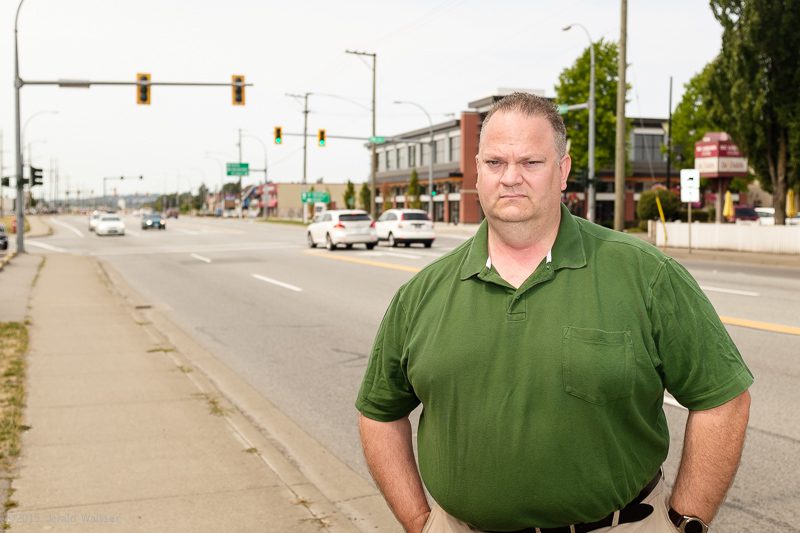
“When I woke up, I was lying on the road on my right side, and I was having trouble breathing,’ remembers McGillivray. “I could hear voices saying ‘Don’t move your neck.’”
By coincidence, McGillivray’s brother-in-law was the lead paramedic on the scene. But with McGillivray covered in blood, his brother-in-law didn’t realize who he was treating until he spotted the name on a work badge. The ambulance soon headed straight for Royal Columbian Hospital.
When the weather warms up, Trauma Service Nurse Practitioner Kathleen Fyvie says the ER can expect an increase in motorcyclists with crash-related injuries. She says regardless of who is at fault in a crash, the motorcyclist rarely escapes unscathed.
“We often see motorcyclists who have sustained multiple injuries, which can include brain injuries, facial injuries, spinal cord injuries, rib fractures, collapsed lungs, internal injuries such as spleen, liver or bowel injury, multiple broken bones and/or nerve injuries.” says Fyvie. “Motorcyclists often sustain severe injuries that are permanently life -altering.”
Not surprisingly, McGillivray has only partial memories of his arrival to the hospital. He remembers waking up as he was getting a CT scan. By then, his wife had arrived and was told surgery would be needed to fix the aorta.
“Aortic injuries are often fatal,” notes Fyvie. “The aorta is the main artery that comes off the heart, so if you tear your aorta and still make it to the hospital alive, you are considered fortunate. Depending on the severity of the injury, you may need urgent specialized surgery. In Fraser Health, it’s only done at Royal Columbian.”
Early diagnosis and treatment are critical for survival from an injury like that. The surgery is long and complicated. McGillivray’s took several hours, as cardiac surgeon Dr. Derek Gunning excised the damaged segment of the aorta and repaired the defect with a synthetic graft, while McGillivray’s heart was connected to a bypass machine to keep the blood circulating through the rest of the body during the operation.
McGillivray recovered in the Cardiac Surgery Intensive Care Unit before moving to a regular ward for a couple of weeks. He’s grateful for the work of the doctors and nurses, including Fyvie, who he describes as his central point of contact at the hospital.
“Being that I saw so many of the doctors coming and going, she was one that I could always go and ask ‘What’s going on?’ or ‘What’s the next step?’ or ‘What are these pills for?’ McGillivray says.
In her full-time role as nurse practitioner for the Royal Columbian Hospital Trauma Service, Fyvie sees all patients who are admitted by her team. “Along with our trauma-trained physicians, I see the patients daily, getting to know them well. This provides consistency of care for these complex patients, ensuring their multiple issues are addressed until they are discharged.
Today, McGillivray says he gets occasional pains that remind him of his crash, but he’s working again and agrees he’s lucky to be alive. While he’s still tempted to get back on a motorcycle, he’s taking his wife’s advice and staying away from bikes.
“If my brother-in-law hadn’t taken me to Royal Columbian directly, I would probably be dead,” he concludes.
